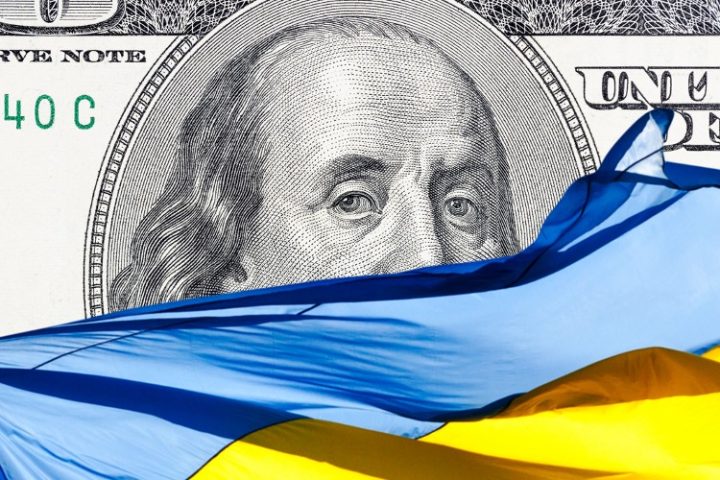
On November 8, Erin McKee, an assistant administrator for the U.S. Agency for International Development (USAID), testified to the Senate Foreign Relations Committee that American funding for Ukraine has run out, putting Kyiv in danger of economic collapse if the country does not receive more money amid its ongoing conflict with Russia.
“We have no more direct budget support,” McKee admitted. “The last tranche was disbursed at the end of the fiscal year. This jeopardizes, particularly over the coming months, Ukraine’s ability to maintain its economic stability while it continues to fight the war. It’s urgent.”
Moreover, McKee claimed that USAID’s help has enabled Ukraine to spend all of its own government revenue for defense purposes, including soldier salaries.
“That means they don’t have any resources to take care of their own people and govern,” she added. Such expenditures as the salaries of police staff, teachers, and healthcare workers would have to cease without additional authorization of U.S. funding, McKee said.
A drawn-out funding disruption would undermine the Ukrainian economy, she alleged, giving Russian President Vladimir Putin an advantage in the ongoing conflict. “If their economy collapses, Putin will have won.”
The U.S. government’s latest fiscal year ended on September 30, with Ukraine depending on American money and arms for both military and non-military expenses. Democrat leader Joe Biden has proposed a $106 billion emergency spending bill that linked aid to help Ukraine fight Russia and Israel fight Hamas. The proposed bill also includes $9.2 billion in humanitarian aid tied to both conflicts.
However, congressional opposition to Biden’s Ukraine policy has surged in recent months. Last week, the Republican-controlled House of Representatives passed a $14 billion aid bill for Israel, leaving new aid for Ukraine to be determined separately. On November 7, the Democrat-controlled Senate blocked the House bill, insisting that Biden’s bundled aid package be authorized instead.
Previously, Congress authorized $113 billion in Ukraine aid in four rounds of legislation. McKee cautioned that without the approval of a new tranche of funding, Ukraine’s government “would need to use emergency measures, such as printing money or not paying critical salaries, which could lead to hyperinflation and severely damage the war effort.”
Regarding the recent EU declaration that it would begin talks with Ukraine on eventual membership, Kremlin spokesman Dmitry Peskov said on November 9 that such EU promises “are unlikely to be real.”
“We are talking about a carrot that is tied [to a stick] in front of the cart,” Peskov told journalist Pavel Zarubin. The spokesman was alluding to the folk tale of a farmer who motivated his donkey by dangling a treat just in front of the cart that the beast was pulling. Although the donkey would keep chasing the carrot, it could never catch it. Some versions of the tale even detailed how the donkey would get beaten with the stick if it stopped pulling the cart, giving rise to the expression “the carrot and the stick.”
European Commission (EC) President Ursula von der Leyen declared on November 8 that she had suggested starting membership talks with Ukraine and Moldova — once the two countries have enforced the reforms mandated by Brussels, that is.
When questioned about a possible time frame for this process — in particular, the 2030 deadline indicated by European Council President Charles Michel earlier this year — von der Leyen failed to provide a clear-cut reply.
“Since we say that EU membership is a process based primarily on merit, we should not focus on 2030. For some it may happen sooner or later,” von der Leyen told reporters.
In response to the EC’s proposal to admit Ukraine into the EU, Hungarian Foreign Minister Péter Szijjártó contended that such a move would bring war into the EU. According to Budapest’s assessment, Kyiv “has not met the conditions set for membership,” and it would be “absurd” for Brussels to assess Kyiv’s its progress while its conflict with Moscow was ongoing, Szijjártó continued.
It would be more favorable for the EU to concentrate on expanding among the Western Balkans countries instead, Szijjártó added. Since Croatia joined the EU in 2013, the bloc has not admitted any new members.
While the EU seems to be in a hurry to include Ukraine among its ranks, it seems to be dragging its feet in addressing the plight of Polish truckers and businesses who lament that they have had to endure unfair competition from Ukraine for more than a year.
Measures that were meant to help back the Ukrainian economy during the Russia-Ukraine conflict are now undermining local Polish businesses, the protesters bemoaned.
On November 6, truckers began to block three major border crossings with Ukraine, permitting only passenger traffic and transport with humanitarian or military aid to pass through. These truckers plan to maintain the blockade until January 6 next year if their demands are not met by then.
After the Russia-Ukraine conflict erupted in February 2022, the EU and Ukraine inked an agreement to permit Ukrainian trucks to enter the EU without entry permits. Consequently, Ukrainian trucks have crossed the Polish border around 900,000 times, compared to 180,000 trucks yearly before last year’s conflict broke out.
In turn, Polish trucking companies are demanding to restrict the number of Ukraine-registered trucks entering Poland and to ban transport companies with capital from outside the EU.
The aforementioned EU-Ukrainian deal, signed last June and extended until next June, admitted “the unavailability of traditional transport routes in the region” due to the conflict “and the urgent need to secure supply chains and food security by using alternative routes via road, in particular for the transport of grain, fuel, foodstuffs, and other goods.”
Although the deal makes it easier “to transport goods between the EU and Ukraine,” it does not permit Ukrainian trucks to pick up and drop off loads within the EU.
Notably, the Polish truckers have pointed out that Ukrainian truckers are transporting goods between points within Poland as well as transporting cargo between Poland and third countries.
“Most of the [Ukrainian] trucks come into Poland empty, they collect loads from Poland and take them all over Europe,” transport company owner Bartosz Jasiński complained.
These protesters also claimed that Russian and Belarussian companies have been registering businesses in Poland, and “drive the prices down and take the cargo that we used to carry,” Marek Okliński, a transport company owner, told AFP.
Furthermore, one of the Polish protesters told The Financial Times that Ukrainian truckers did not have to abide by EU transport regulations: “We constantly receive new burdens from the EU to which we have to adapt,” while Ukrainian carriers can function on their “own terms.” Besides, protesters highlighted tiresome procedures upon returning back to Poland from Ukraine:
“The Ukrainian side has created an electronic queue system, where a carrier wanting to enter Poland must register…. The waiting time is around 11 or 12 days.”
This is not the first time Poland has witnessed protests against Ukraine’s destabilizing effect on its economy, with the recent news akin to the topic of Ukrainian grain imports.
In September, the EU opted not to renew a ban on Ukrainian food heading to nearby EU countries. Subsequently, Poland implemented its own ban to shield domestic farmers from Ukrainian grain inundating local markets. “We’re going to do it the way farmers did — keep protesting until the government acknowledges the problem and reacts to it,” said Jacek Sokół, an owner of a small trucking company.
Nonetheless, neither Brussels — nor Warsaw — seem to be too bothered about the Polish truckers’ complaints. When asked by The European Conservative about the situation, European Commission transport spokesman Adalbert Jahnz maintained his stance voiced during a press briefing on November 7:
“We have been in contact with the Ukrainian and the Polish authorities to assess the situation, but for now I cannot tell you anything further as these contacts are ongoing.”
The only Polish political party that appears to be objecting to the EU’s unfair treatment of Polish truckers is the nationalist and Eurosceptic Konfederacja, whose co-leader Krzysztof Bosak held a joint press meeting with the owners of trucking companies, declaring, “Today, we are standing together with the leaders of the transport industry, with people running a business. The protest is being re-launched due to the failure of the government to meet the industry’s expectations.”
Konfederacja was the only major party before the Polish parliamentary elections on October 15 this year to denounce many aspects of the military, economic, and humanitarian aid given by Poland to Ukraine, insisting that Poland has to take care of its own domestic matters.
“Maybe some people don’t even realize it. Transport generates 7% of GDP in our country. By comparison, agriculture accounts for only 3%. Mining 5%. So let’s pay attention to the fact that our mostly small family businesses generate a huge income for the Polish state,” business owner Edyta Ozygała posited during the Konfederacja-led meeting.



